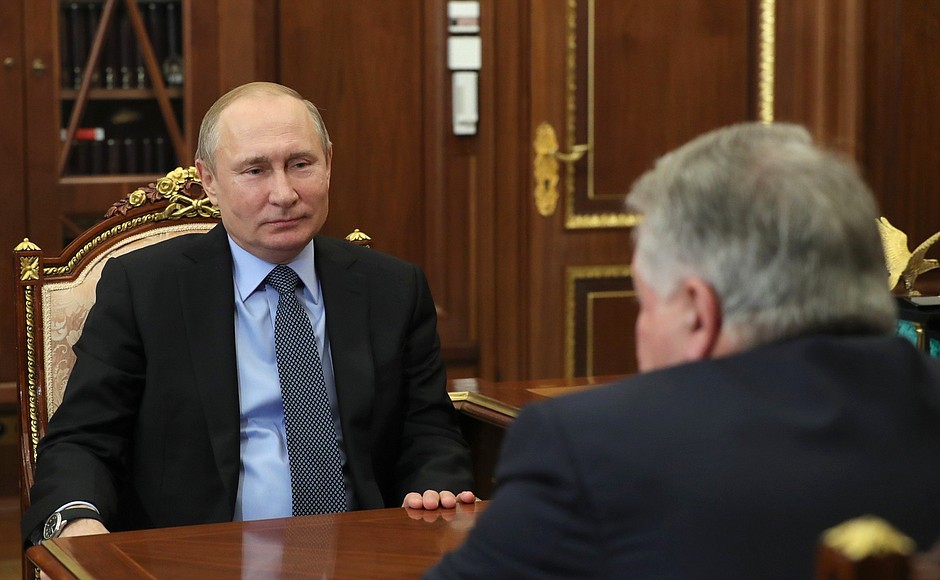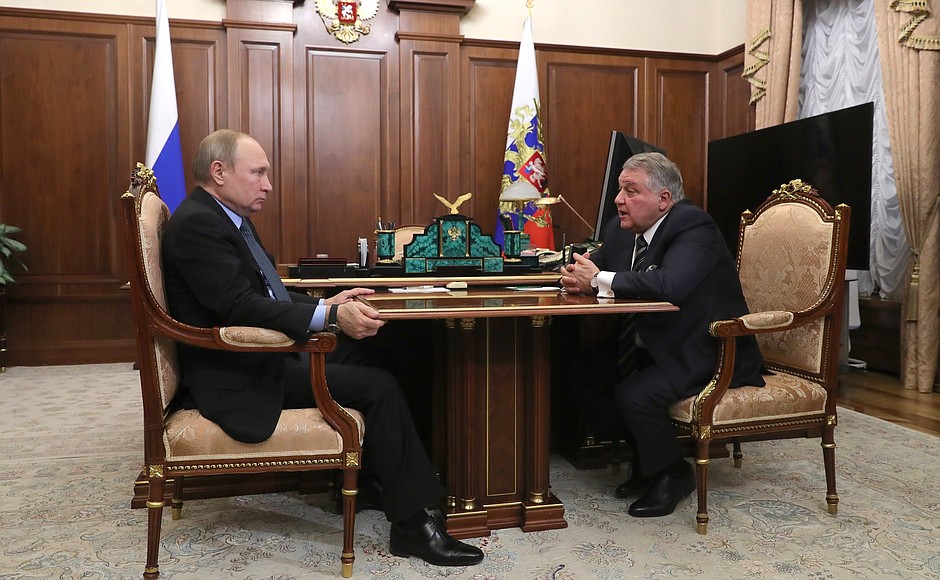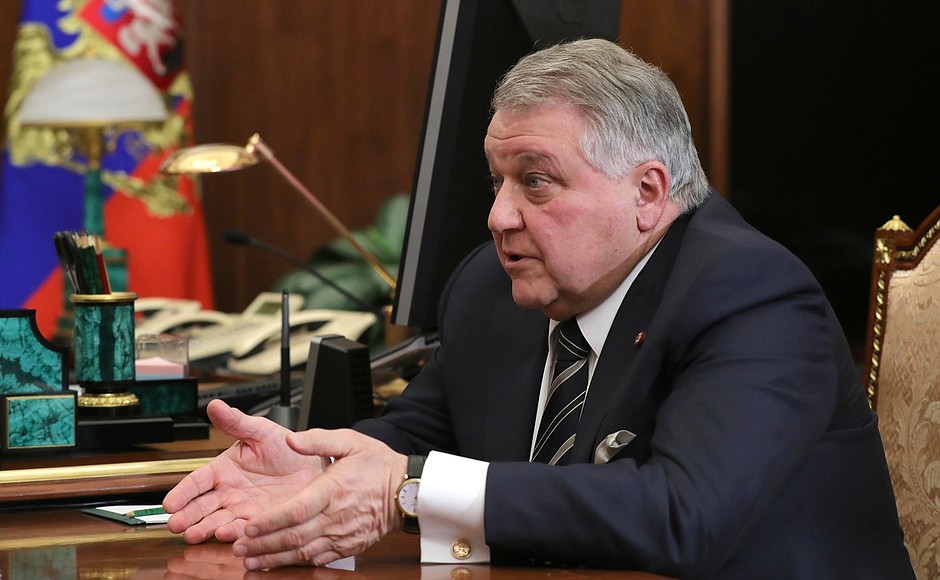
President of Russia Vladimir Putin: Mr Kovalchuk, it is well known that the Kurchatov Institute was founded in 1943, when our country faced major problems, the war was going on, but work on the atomic project had already begun. Later, the Kurchatov Institute was transformed into a multidisciplinary centre. We know that the first atomic reactor for peaceful purposes was created here at the Kurchatov Institute.
Director of the Kurchatov Institute National Research Centre Mikhail Kovalchuk: Nuclear medicine, too.
Vladimir Putin: Yes, nuclear medicine. Then, superconductivity in the atomic sphere, and magnetic confinement of plasma. In the 1980s, I believe, it was even, in fact, a centre for creating the domestic internet. What makes the Kurchatov Institute tick today?
Mikhail Kovalchuk: Your attention, Mr President, if I may put it that way, because since 2007, when you held a meeting on nanotechnology, we have been working in all the classic areas related to the nuclear complex and created fundamentally new areas of research associated with nature-like technologies and the convergence of science and technology.
We have created an unparalleled NBICS centre [centre of nano- bio-, info-, cognitive and socio-humanistic sciences and technologies], a nature-like base, and we have accomplished quite a bit in genetics. We have made vast progress in megascience. You issued your first executive order to create a national research centre in 2008, which allowed us to accomplish the unthinkable, because following the dissolution of the Soviet Union the research environment broke down into clusters, everything collapsed and, in fact, our partners, so to speak, managed our institutions separately, hiring separate groups of people for each.
The creation of the NRC, which was home to our country's most powerful potential, primarily in the sphere of nuclear physics, made it possible to consolidate our efforts, and we became an integral part of the global and European landscape.

You know that under the scientific initiative that you supported, the world’s most powerful free-electron X-ray laser was launched in Hamburg a year ago, one-third of which is based on Russian ideas. In fact, we made 30 percent of the investment as well as a vast technological contribution. In fact, we own part of this installation.
Furthermore, we joined the European Synchrotron Radiation Facility, we are CERN and ITER members, that is, we are full-scale participants, and the European landscape is inconceivable without us.
Vladimir Putin: How is the project in Gatchina progressing?
Mikhail Kovalchuk: Thanks to the meetings that you held in Dubna many years ago, megascience has expanded, and we are now back to where we were.
Four select projects were launched in Russia, and Gatchina is one of them. I already reported to you, and I will gladly say it again – you mentioned this in your Address – we completed the first phase of the energy launch of the world’s most powerful high-flux PIK reactor in Gatchina. That is the first thing. Today, we are moving forward according to plan, doing routine work and, by the end of the year, if everything goes well, we will achieve the planned parameters. Then, Russia will have one of the world’s most powerful neutron research facilities.
Second, in accordance with your instructions and your agreement with your German counterpart, we are now working through a detailed assignment to establish a Russian-German high-tech centre to conduct interdisciplinary research based on these unique developments.
Finally, regarding the programme that you announced to create a network of national synchrotron sources. The first one is at our site in Protvino, the fourth-generation source ISSI-4. This is a unique ground-breaking installation unmatched anywhere in the world and one that is unlikely to have a competitor for at least another 10 to 20 years. It was developed at a time when we were implementing projects in Germany together with other countries and actually created a base. We added to this an installation in Akademgorodok and an installation on Russky Island. This will allow us to create a unique megascience base comprised of the PIK reactor and the fourth-generation synchrotron. We will have the best research base, something the world will not have for another 10 to 20 years.

In addition, two less sophisticated installations, though also unique in their own way, will provide for, firstly, the spatial connectivity of the country, and secondly, will create a whole new level of research culture in the main centres of the country, namely, Russia’s Far East and Siberia.
Vladimir Putin: Make sure that funding comes in regularly.
Mikhail Kovalchuk: We will. This is important. I want to emphasise that today the NRC consists of seven of the country's largest institutes and employs 14,000 people. This consolidation and centralisation of funding and management enabled us to launch the PIK in only five years. This is important.
Vladimir Putin: Congratulations.
Mikhail Kovalchuk: I want to congratulate everyone on this and to thank you.
<…>